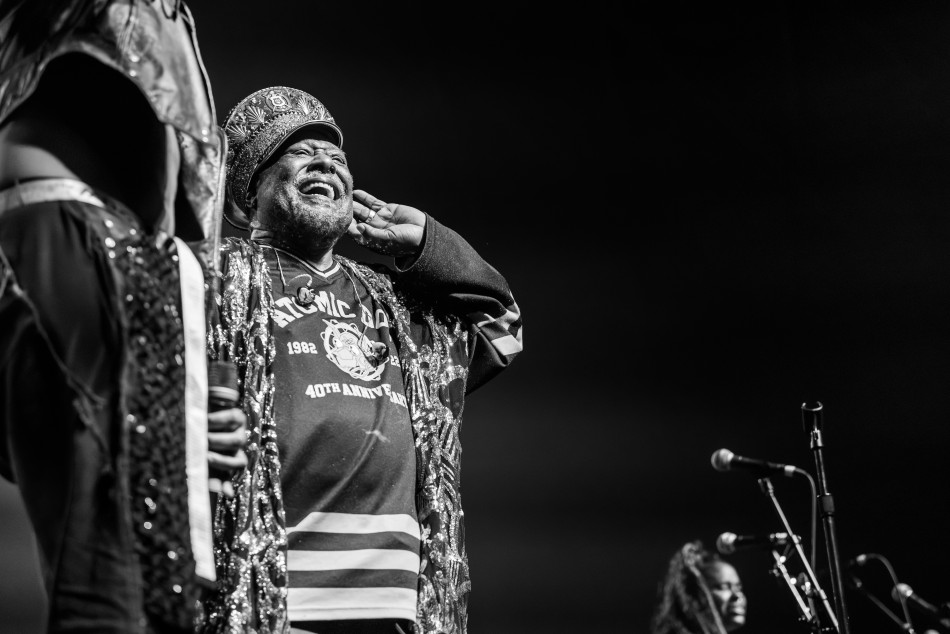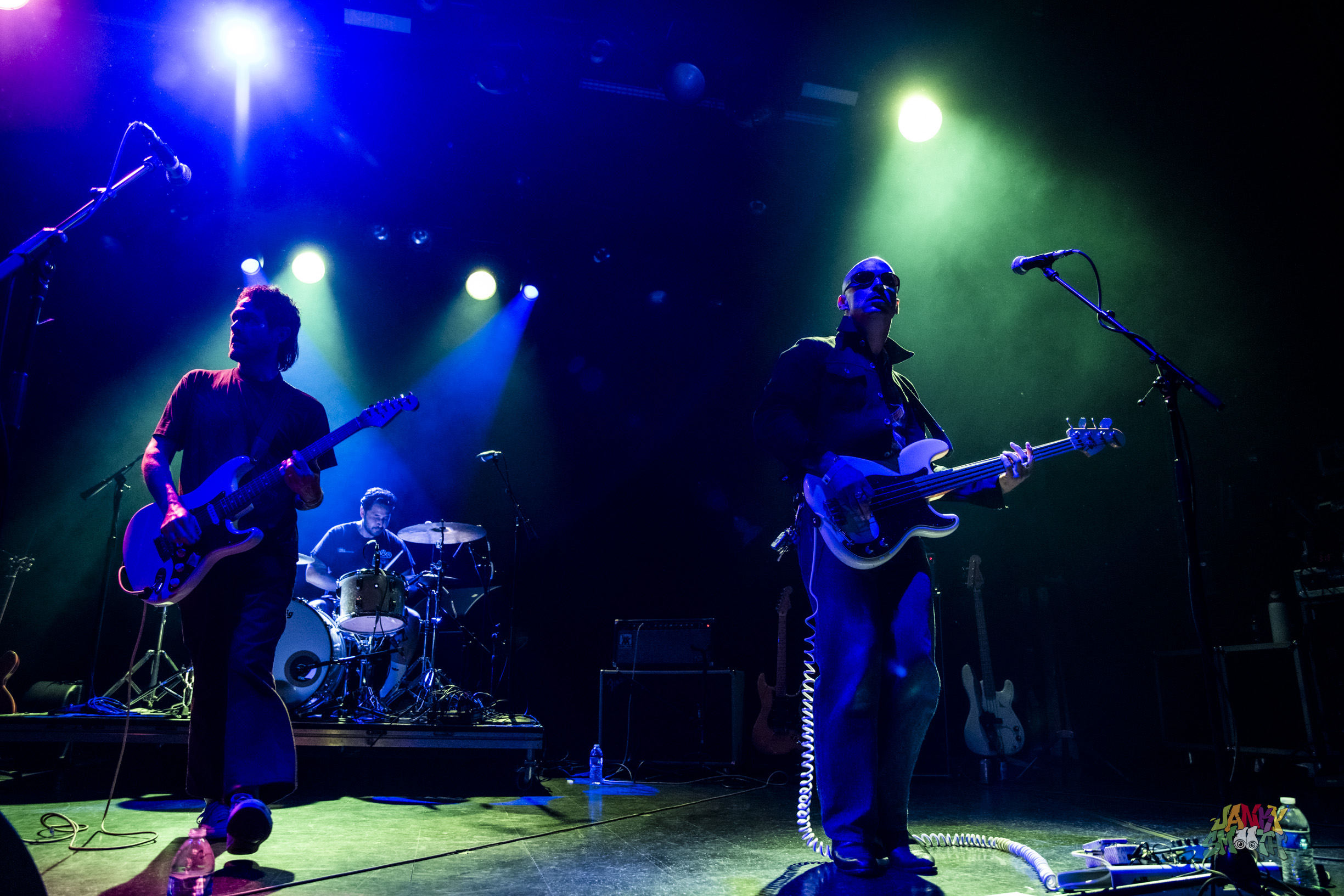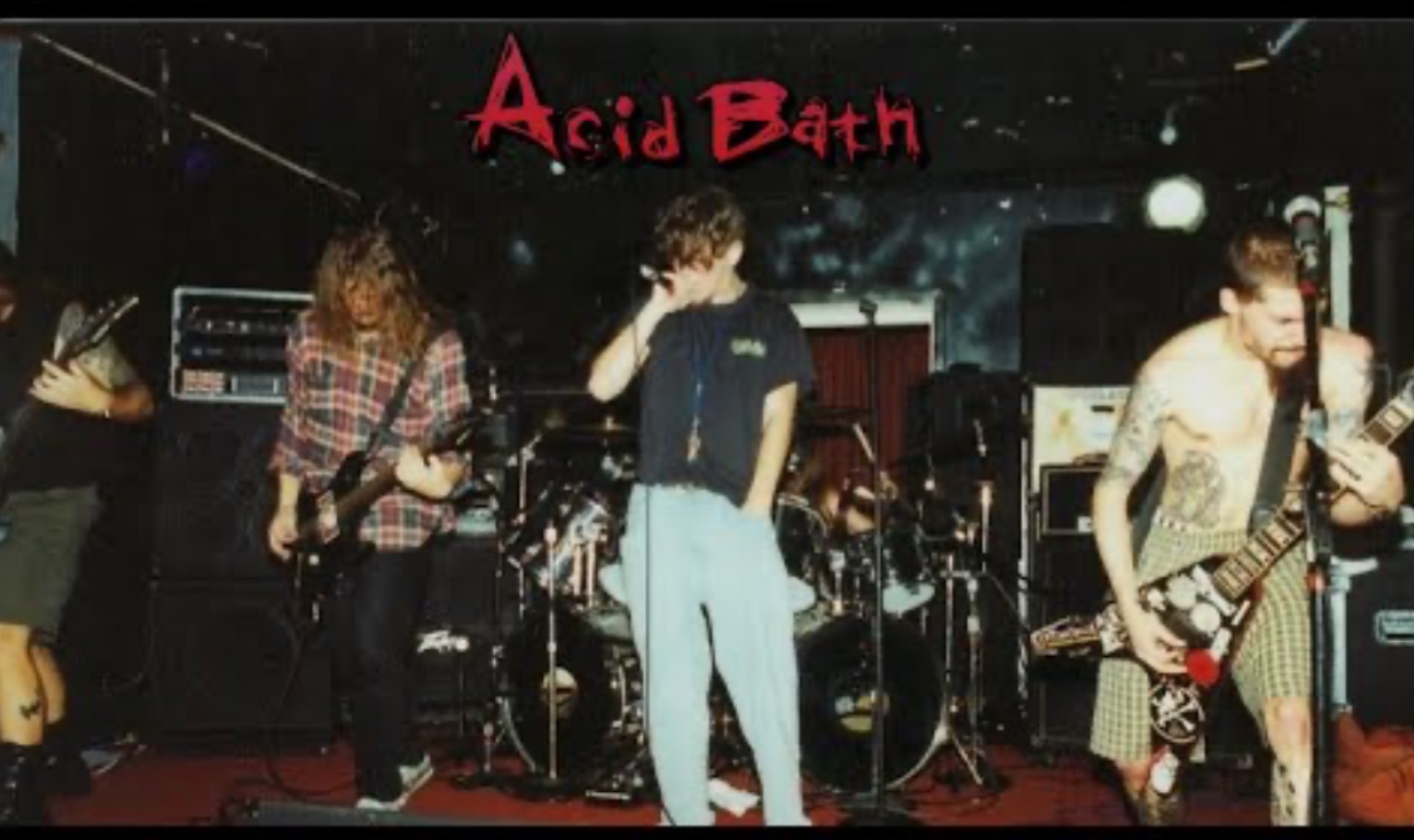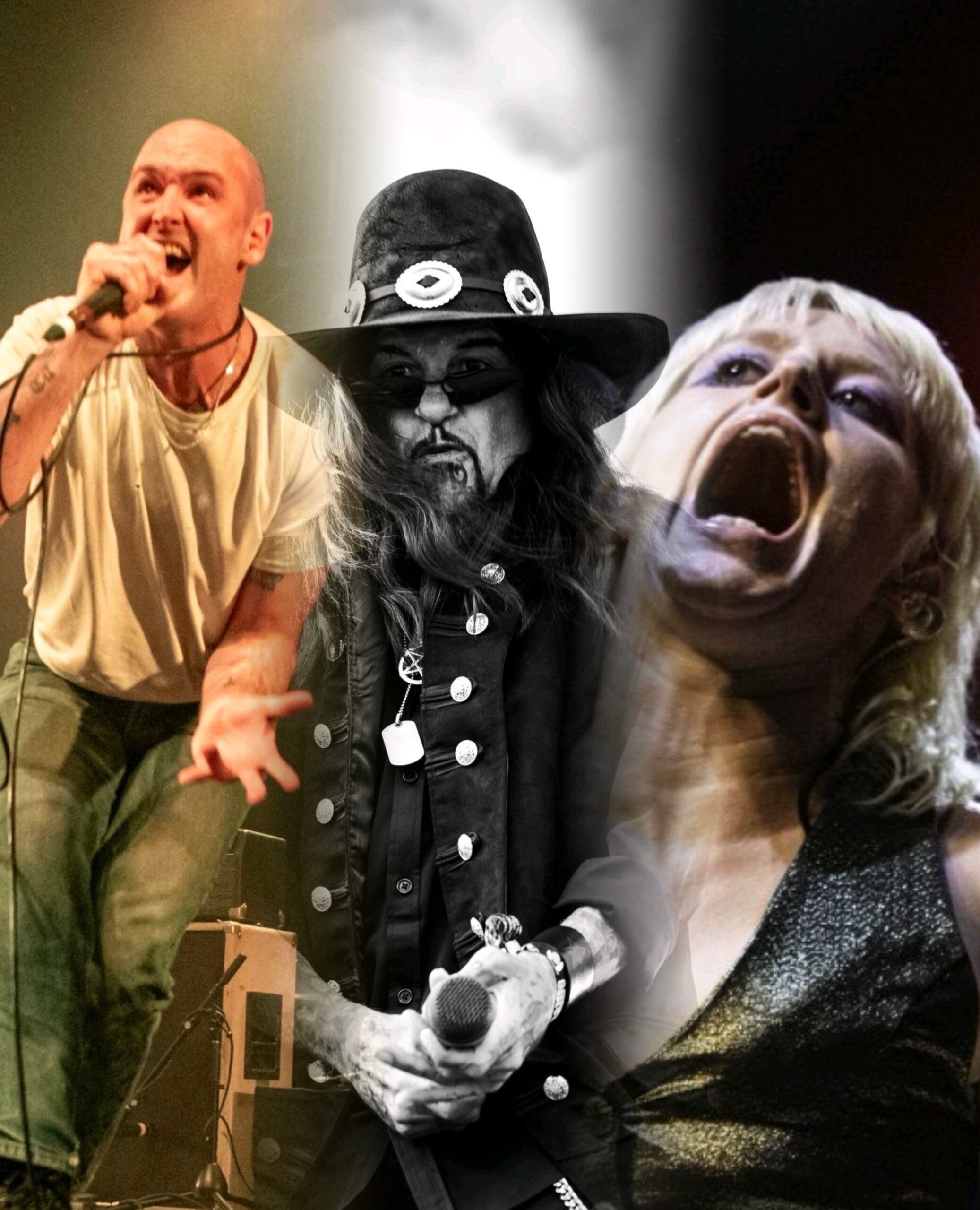
YouTube (owned by Google Inc.) is a remarkable platform for the sharing of videos and music by both fans and creators. Many artists have used it to start careers and achieve a form of stardom, which is great. But what’s behind the curtain? How is the “monetization” income shared with content creators, filmmakers and musicians, by the businessmen who operate YouTube?
I am the guitarist, co-founder and one of the songwriters for the band Dead Kennedys. We’ve been called “one of the most popular and important American hardcore punk bands” by the Rough Guide to Rock and “the undoubted kings of U.S. punk” by the Encyclopedia of Popular Music. We are proud of our Do It Yourself independent ethic and have negotiated our own recording, song publishing and other licensing deals. As an independent artist, we attained the extraordinary achievement of Give Me Convenience or Give Me Death earning a Gold Record in both the United States and the United Kingdom.
Back in the day, Dead Kennedys did a publishing deal in the U.K. with Virgin Publishing where they received 30 percent of gross songwriting income, with the DKs receiving 70 percent. Virgin also paid the band an advance which we used to finance the recording of our second LP. They also spent a significant sum out of their own anticipated 30 percent to promote our LP when it was released.
With YouTube’s standard deal, they take 45 percent of what they call “recognized” income (presumably their term for net) of both the recording and composition income. No advance and no investment in promotion. According to Google’s financial reports, YouTube’s expenses can be estimated as about 37 percent of revenues, so 45 percent of net is the equivalent of them taking 65 percent of gross, so that means about only 35 percent goes to artists and labels. YouTube is taking almost twice the “old evil” music companies’ cut, for basically doing no more than hosting on a server.
For comparison, Apple’s iTunes takes 30 percent of gross (they pay all their costs out of that share)–less than half of Google’s 65 percent cut. Apple then gives 70 percent of income to the artists & labels, versus Google about 35 percent.
With YouTube, it’s take it or leave it, there’s no negotiation. And if you leave it, the businessmen at Google still make big money because they do not have to get your consent to “monetize” anyone’s files. Or photos. Or life. Yes anyone, including you. There’s a loophole in the law. That can be corrected.
You don’t suppose that these Wall Street Internet corporations have a hand in trying to confuse the public on the profound moral difference between sharing something with family and friends and distributing, without permission, other people’s files for money?
Based on YouTube’s projected gross revenue for 2012 of $1.7 billion with a profit of $1.2 billion and $500 million to content creators, Google is making $610,000,000 in excess income that would normally go to artist’s livelihood. Figuring $50,000 a year for a middle class independent artist, that’s the equivalent to the livelihood of 12,000 people with imagination and creativity who have been sent off to work in the salt mines of Walmart instead of making life more interesting for the rest of us. No wonder we have over 45 percent fewer working musicians making a living now since 2002. (US Bureau of Labor Statistics)
Meanwhile, back at Google Inc.’s luxurious headquarters, the new party bosses have private chefs and masseuses, drive yellow Lamborghinis and have French Champagne flowing out of marble fountains!
Google’s corporate slogan is “Don’t be evil.” The joke is on you and us. They could easily give filmmakers and musicians twice the share they currently do and still make a $600 million profit. Apple does it. The old film and music companies did it. It’s not revolution when the new boss is worse than the old boss. It’s back to the 1920s, when America’s great jazz and blues artists were targets for exploitation and rip-offs. “Don’t be evil”–yeah, right dude. Not!
The main problem is the billions in advertising wealth generated by ad networks, such as the Google’s, Yahoo’s etc. They can profit from any site, legitimate or not, without any consent. It’s crazy, shady operators can be stealing from artists but it’s perfectly legal for ad network to fund them with ads. And they do. People and creators are being ripped off, most people have no idea. This legal loophole is choking creativity.
Though YouTube is probably the worst offender, the other big internet music services also use this loophole as a weapon to force unfavorable deals onto artists.
Taylor Swift recently brought these ‘robber baron’ business tactics into the main stream when she removed her catalog from Spotify, they were trying to force a bad deal on her. Dead Kennedys had Spotify figured out early on, we pulled most but not all of our tracks off of Spotify back at the start of 2013. Musicians are not against streaming, but we are against “plantation/sharecropping” business practices. It doesn’t have to be this way.
Educate yourself about what’s really going on and the reality is shocking. Don’t buy the lies and memes, educate people, share this article, stand up. The Internet is not like the weather, it was created by humans and can be changed by humans. It’s not about regulating the Internet, it’s about regulating businesses. (They’ll try to confuse that, too.)
Featured photo: Pixie Vision Photography
Sources:
Google’s YouTube Revenues Will Pass $1 Billion In 2012
http://techcrunch.com/2011/03/21/citi-google-local-youtube-1-billion/
2012 Financial Tables
http://investor.google.com/financial/tables.html
45percent Fewer Professional Working Musicians Since 2002
http://thetrichordist.com/2013/05/21/45-fewer-professional-working-musicians-since-2002/








3 thoughts on “How YouTube Pays Artists by East Bay Ray”
If you’re gonna write an article at least using recent numbers, though I suspect you didn’t because it doesn’t fit your narrative. From an NYT article from Feb. YT revenue is about $4 billion in 2014. After paying for content, and the equipment to deliver speedy videos, YouTube’s bottom line is “roughly break-even.” There’s no profit, and the fact is they are the only social media site actually paying creators a % of ad rev. Facebook and twitter don’t. In fact YT is actually funding shows from its creators. Is iTunes/Apple doing that? YouTube has created spaces all around the world for its creators to use for free! Has any other site done that? To me, YouTube is the epitome of punk rock. You can create whatever content you want (as long as its legal) and throw it up online to find an audience and monetize it, or even choose not to monetize it if you want. There is now a whole new generation of creators who make a living doing YT videos on their terms. They are their own boss and have no one giving them notes or bossing them around on what kind of content they need to make. I’m so sick of the music industry bitching about how they are being victimized. Why don’t you guys get all the rightsholders, the labels the publishers and the PRO’s in one room and lock them until they create a site that satisfies the industry. It’ll never happen, because the labels and publishers and PRO’s all fight each other who should get what. Instead of whining whenever a new service comes up, why not create the solution?
I’m confused by much of your reply:
“the fact is they are the only social media site actually paying creators a % of ad rev. Facebook and twitter don’t”
They are also the only social media site in which users can upload and utilize other peoples content without permission, and then monetize it. You can’t simply search for a song on FB and then listen to it – you’d have to search the band themselves, who may or may not have decided to stream their content on FB. However, you could go to YouTube and search that song, and find it many many times over – it’s a completely different animal. In addition, you seem to be praising YT for paying a % in general, instead of nothing, with no thought (or care) to what that % is…YT’s cut of 45% of net earnings resulting from ads specifically on a content owner’s material is insanely exploitative. Do you disagree?
“YouTube’s bottom line is “roughly break-even.”
That has no bearing on YT’s 45% cut of net earnings, which is what the article is taking issue with. If YT’s overhead is so extreme, and the only way to make it work is to exploit content owners, than there is an inherent problem with the business model. YT should instead charge more for ad space…ultimately it shouldn’t be the burden of content owners to finance YT’s business. Do you disagree?
“YT is actually funding shows from its creators. Is iTunes/Apple doing that?”
That may be, but again is of no relevance to YT taking 45% of net ad revenue. If YT wants to fund content, good for them…this is entirely inconsequential, and in no way should it be constructed as a criticism of Apple. And keep in mind that the vast majority of content on YouTube is from creators with no direct relationship and zero affiliation with YouTube.
“YouTube has created spaces all around the world for its creators to use for free!”
See previous response
“You can create whatever content you want (as long as its legal) and throw it up online to find an audience and monetize it, or even choose not to monetize it if you want.”
You fail to mention that you can also upload whatever you want (even if you don’t own it), and even choose to monetize it if you want, with absolutely no penalty in the event you are caught…oh, and that YT directly participates in the profits resulting from illegal monetization of other people’s content, is in no way liable for it, and can keep whatever money it has illegally earned if and when a content owner sends YT a DMCA notice.
“There is now a whole new generation of creators who make a living doing YT videos on their terms.”
Yes, and this is great. But again, doesn’t address the unfair exploitation of YT’s revenue share.
“I’m so sick of the music industry bitching about how they are being victimized. Why don’t you guys get all the rightsholders, the labels the publishers and the PRO’s in one room and lock them until they create a site that satisfies the industry. It’ll never happen, because the labels and publishers and PRO’s all fight each other who should get what.”
I share your discontent for much of the industry’s response to these kinds of matters. But I caution you to realize a) that labels and publishers don’t account for all creators…many (including me) are independent and unaffiliated with a label or publisher, b) PROs have no real relevance to this discussion about YT and it’s share of ad revenue, c) ultimately the issue it hand is that YouTube has created a platform in which content owner’s creations can be uploaded (and monetized) without their consent, forcing creators to fight an impossible battle of sending YT takedown notices day in day out, or otherwise join YT and be the ones doing the monetizing….so YT has essentially leveraged piracy to force creators into bending to their will….and then on top of that YT is taking 45% of net from the resulting revenue…that’s pretty shameful. Or do you disagree?
“Instead of whining whenever a new service comes up, why not create the solution?”
I don’t get this – nobody asked Google to create YouTube in the first place. The industry is simply responding to what Google has done. Instead of creating a service that exploits creators, why not run the service fairly (granted this is a subjective assessment, but surely 45% of net does not qualify).
This is all well and good, but no one seems to be offering any viable solutions to the problem. What do you think musicians should do? Recently Adele decided to boycott digital spotify and all the digital downloads and just sell CDs. I was recently in a Target Store and saw dozens of her CDs just sitting there unsold. I’m not sure her strategy is going to work. I like CDs, because I want an actual product I can hold in my hand, but I am “old school”. Most kids are going to download it. What’s the solution?